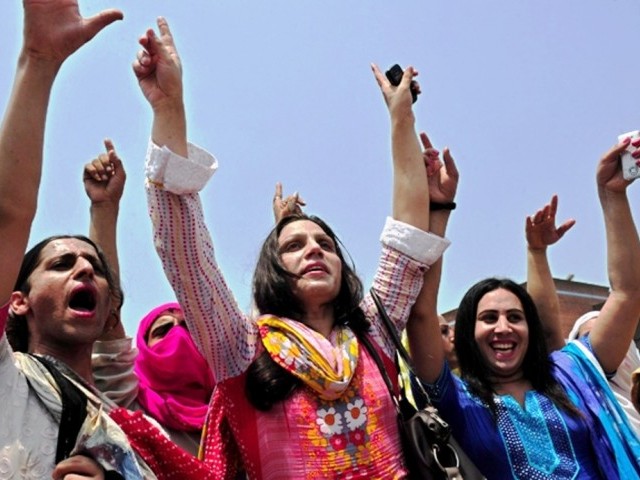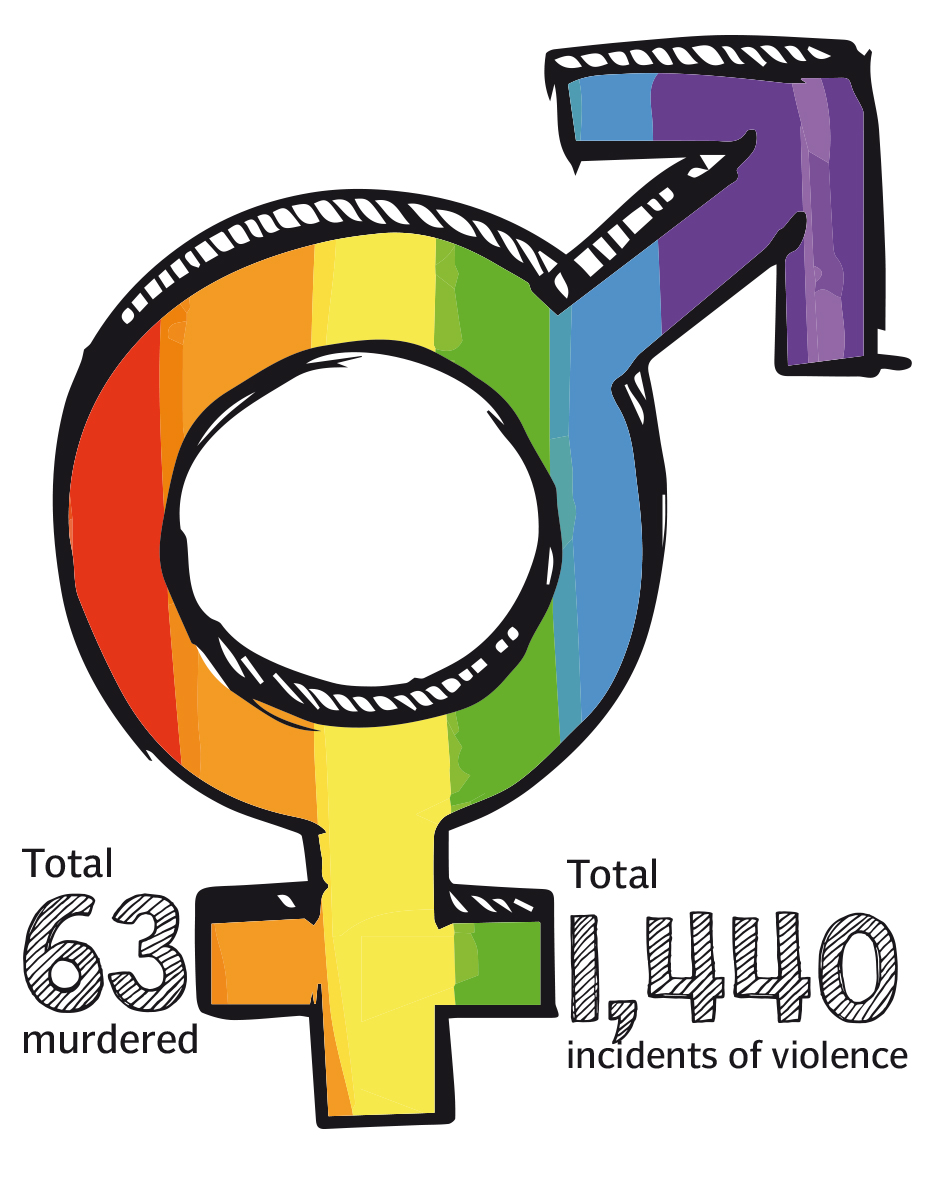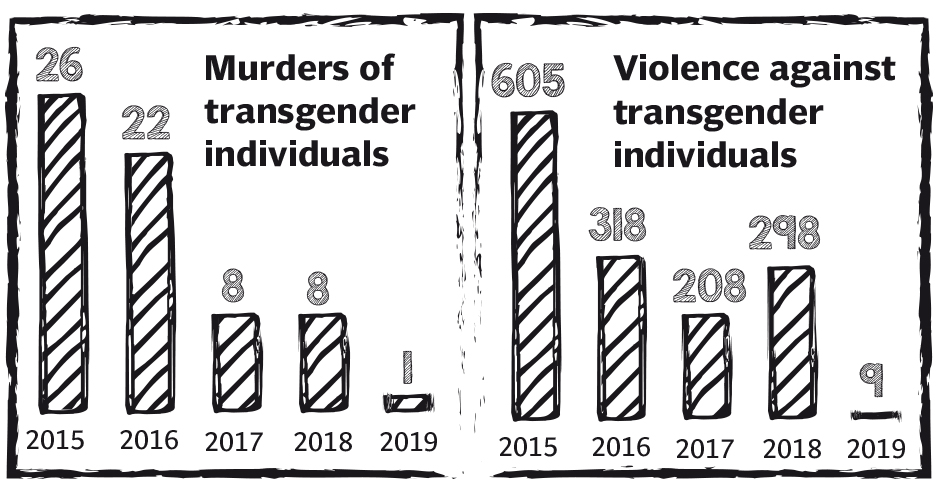by AHTISHAM KHAN

“Why would anyone treat us with respect when even our own parents don’t?!” This is the lament of Farzana, the president of the Shemale Association’s Khyber-Pakhtunkwa chapter.
Some 63 transgender individuals have been murdered in the province over the last four years, a recent report by a transgender activist group has revealed.
This is, however, only the most extreme aspect of a broader pattern of violence against transgender individuals. As many as 1,440 incidents of violence against the community members were reported across all eight districts of K-P over the same period, reported a document released by the TransAction Alliance, an NGO working for transgender and intersex rights in K-P and FATA.
This year began on a tragic note for the transgender community with the killing of one transgender individual in Karak, the report highlighted. Overall, however, murders do appear of have gone down since 2015 – 26 transgender individuals were killed that year as opposed to 22 in 2016 and eight each in both 2017 and 2018.
Likewise, incidents of violence do appear to have decreased although there was a slight increase in 2018 as compared to the preceding year. As many 605 incidents of violence against transgender individuals were reported in 2015 as opposed to 318 in 2016, 208 in 2017 and 298 in 2018. Another nine incidents of violence have been reported this year so far.

“We face the worst sexual and gender-based violence in K-P,” lamented Farzana. “We face not only domestic violence but sexual abuse… even gang-rape,” she said.
However, the plight of the transgender community does not end there. “We are abandoned by both our family and society at large. Our only support comes from our gurus and other members of the transgender community,” said Farzana.
“Lack of employment opportunities means transgender individuals mainly earn through dance performances at private events,” she explained. “But this too has become increasingly difficult due to growing Taliban influence in K-P and many of us have no option but to beg for money.”
But if even that was not enough, it appears that the K-P transgender community is sometimes not even allowed to celebrate and express their happiness. In 2018, police attempted to expel several transgenders from Mardan district after they were banned from organising any functions. In February this year, a transgender person named Sheeba was prevented from celebrating her own birthday, leading to a protest by the community in Peshawar.
Although transgender individuals have been able to win some reprieve and recognition – the Supreme Court recently allowed separate identity cards for transgender individuals – the community still struggles on other fronts.
“Whenever we visit hospitals, staff members, doctors even treat us in a derogatory manner,” Farzana complained. “If we have to visit the police station, officers refuse to register FIRs on our request. We are only heard when we take to the streets,” she said.
Failure to get justice
Talking to The Express Tribune, Blue Vein coordinator Qamar Naseem said no suspect was ever sentenced to capital punishment, life imprisonment or received any other harsh sentence in any of the 63 murders of transgender individuals.
“When a transgender individual is murdered, the police operations team arrests suspects immediately, but an investigation officer later declares the case ‘weak’,” he complained. “Suspects are let off easy because some statements are changed or removed entirely.”
According to Naseem, transgender individuals are very active when it comes to filing cases whenever they experience an untoward incident. “But due to poor investigation and lack of interest on the police’s part, the cases often never even reach the court,” he said.
“This means that transgender individuals are often to disheartened to follow up on cases they file. In many instances, they have no option but to accept blood money and forgive the killers of their fellow transgender community members,” he added.

This was the case when Sufaid was gang-raped and murdered by a group of 10 to 12 men in Peshawar. Even though an FIR was promptly filed, police released the suspects early following a poorly-conducted investigation. In the end Sufaid’s family pardoned her killers after accepting Rs3 million in compensation.
A similar process occurred following the murder of Naazo in Peshawar. “A suspect named Asif was arrested but the main accused, the one suspected of murdering Naazo and mutilating her body, was released by the high court because of a shoddy investigation,” said Shemale Association General Secretary Aarzoo.
“Asif was arrested because he was caught red-handed with a bag containing Naazo’s remains. But even though he accused his accomplice of carrying out the actual killing and confessed only to helping dispose of Naazo’s remains, further investigation was not carried out and the real killer possibly was let of scot free,” Aarzoo added.
The Express Tribune for more
